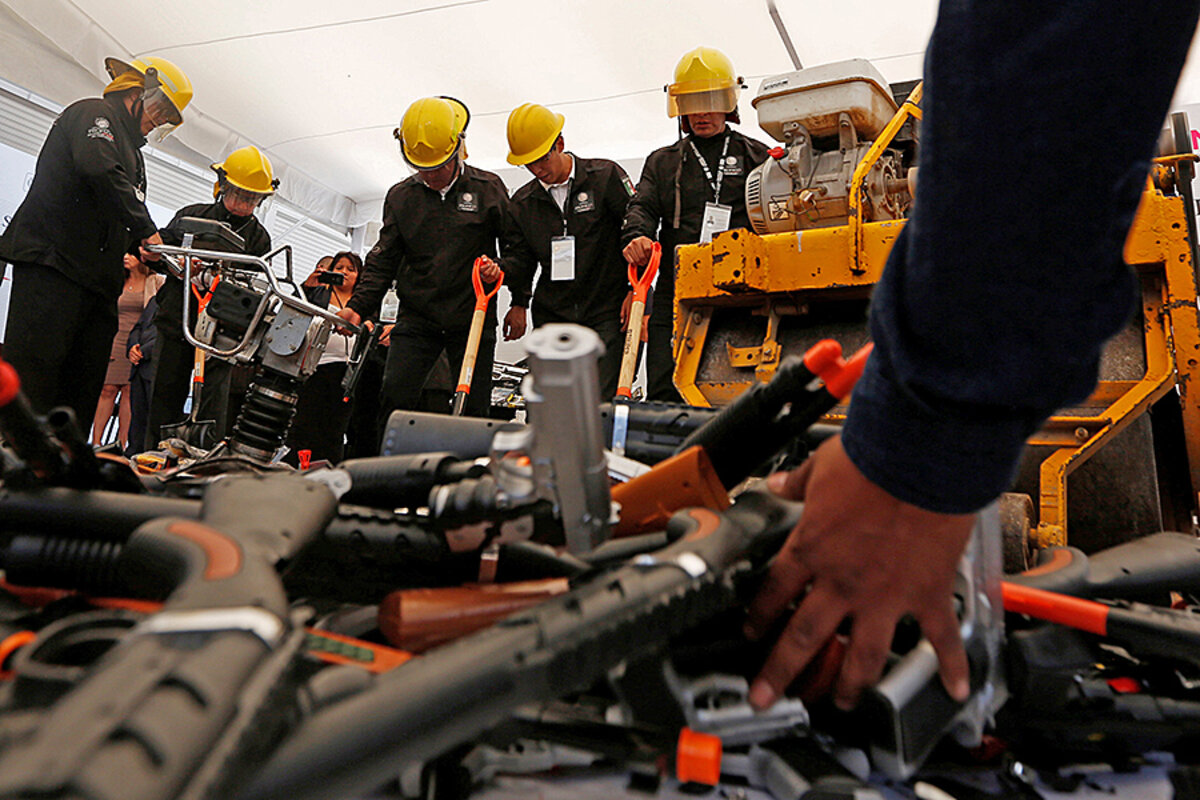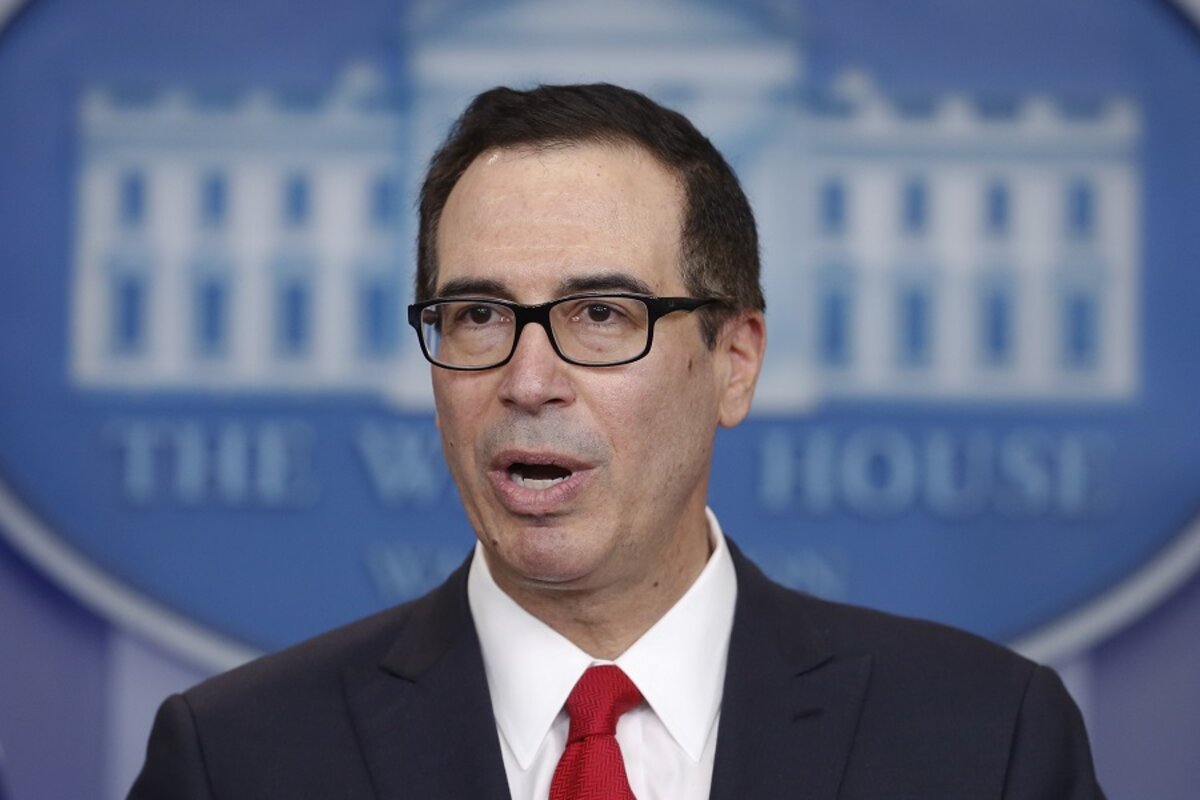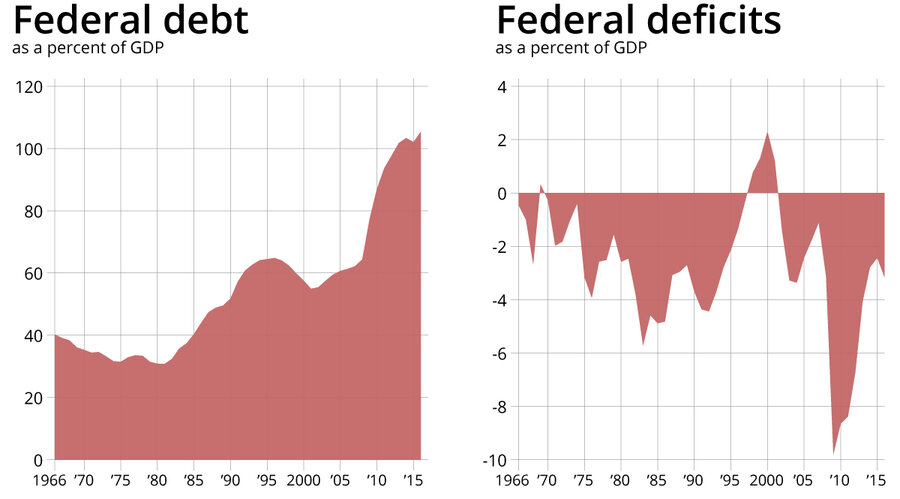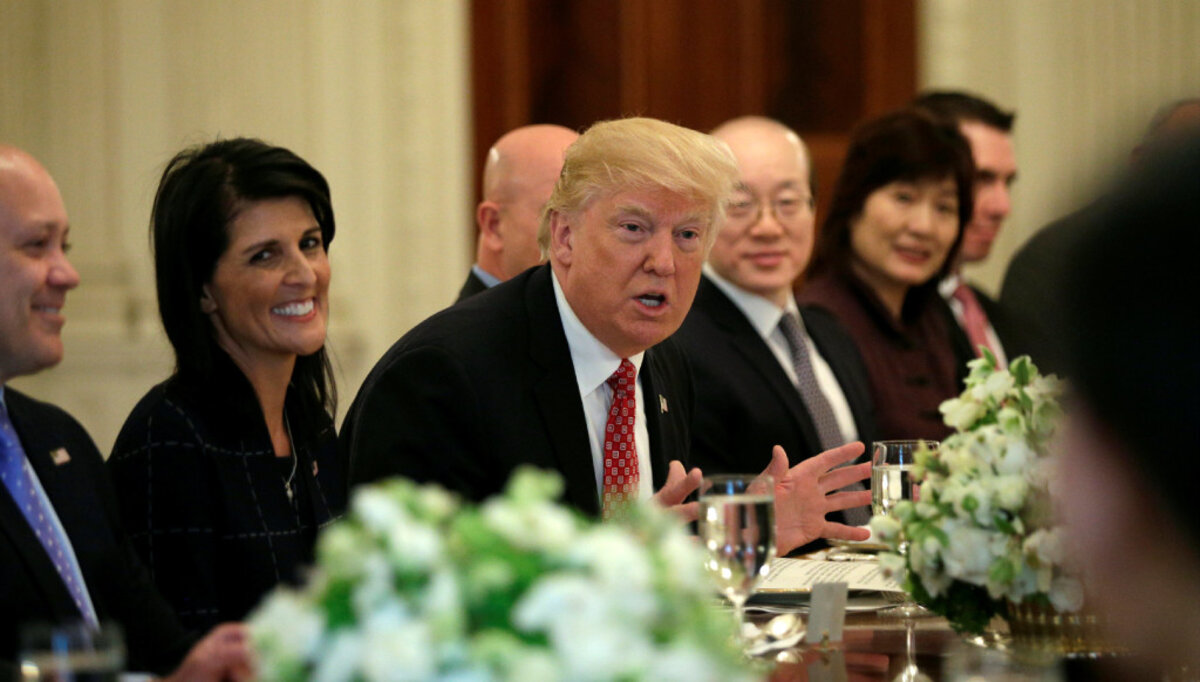Budget deficits generate plenty of arguments – among economists who differ on how detrimental they are, and among lawmakers, for whom they can be a favored political punching bag. As President Trump rolls out his tax plan, it looks as if tolerance for high federal debt is growing – with reservations, of course. But it's a different story in households: Americans are tucking away far more than they used to, chastened by the 2008 Great Recession.



Why is ���Ǵ��� Science in our name?
Our name is about honesty. The Monitor is owned by The First Church of Christ, Scientist, and we’ve always been transparent about that.
The church publishes the Monitor because it sees good journalism as vital to progress in the world. Since 1908, we’ve aimed “to injure no man, but to bless all mankind,” as our founder, Mary Baker Eddy, put it.
Here, you’ll find award-winning journalism not driven by commercial influences – a news organization that takes seriously its mission to uplift the world by seeking solutions and finding reasons for credible hope.
About usAlready a subscriber? Log in
Already have a subscription? Activate it
Ready for constructive world news?
Join the Monitor community.
SubscribeMonuments are intended to evoke wonder and majesty. This week, they also sparked fierce debate – first in New Orleans, which began removing four Confederate statues, then across the nation as President Trump today ordered a review of two dozen sites declared national monuments. That amounted to tens of millions of acres set aside for protection by presidents Obama, Bush, and Clinton.
The fact that crews wore face coverings as they took down the first Confederate statue – at night – underscores the intense passions enveloping the South’s history. National monuments are no less emotional amid tussles over drilling rights and Native American spiritual heritage.
Every country must wrestle with how it remembers its history, especially the parts it would rather gloss over or prettify. Its monuments speak volumes about how they not only mark but also embrace national progress.
Help fund Monitor journalism for $11/ month
Already a subscriber? Log in
Monitor journalism changes lives because we open that too-small box that most people think they live in. We believe news can and should expand a sense of identity and possibility beyond narrow conventional expectations.
Our work isn't possible without your support.
Today’s stories
And why we wrote them
( 5 min. read )
( 6 min. read )
If you're not looking for it, can you find it? A new paper is out arguing that humans may have populated the Americas 115,000 years earlier than thought. Some paleontologists are pretty skeptical, and note that evidence for such early human settlement has not been unearthed before. But others say it simply may have been overlooked by those who thought it impossible – and thus didn't see what was in front of them.
( 6 min. read )
When does being up 20 points in the polls become a not so comfortable lead? For French presidential contender Emmanuel Macron, the answer lies in #sansmoile7mai – or 'without me on May 7.' The tension is being heightened by a former candidate who appears to be supporting those who might choose to do something other than vote on election day. But that doesn't work for many French. They may be disillusioned by a messy campaign – but their voices are rising against those who might consider opting out.
( 5 min. read )
History does have a tendency to repeat itself – or so it seems from the battles over free speech playing out at UC Berkeley. The issues are as contentious now as they were in the 1960s, when the school was an icon of the free speech movement. But there are differences – and there are lessons to be learned by revisiting that era. That's what reporter Jessica Mendoza did by speaking with Lynne Hollander Savio, an activist and widow of protest leader Mario Savio.

( 8 min. read )
The Hendersons, who are parents of a transgender sixth grader, admit that their journey toward understanding their son has been a challenging one. But it's ultimately been rewarding. Now, as they watch social gains for transgender kids come under threat, they are asking others to do what they did: Challenge themselves to see the individuals behind the issues, who all are worthy of love and consideration.
The Monitor's View
( 2 min. read )
One reason individuals support their police is so they don’t have to own a gun. Police are the preferred night watchmen of safety. Yet if some neighbors start to buy guns, the police look less reliable. And more people then buy guns. That same logic may be at play in Northeast Asia.
As North Korea moves to own more nuclear weapons and missiles, will Japan and South Korea seek nuclear weapons rather than rely on the United States – as the preferred cop on the beat – with its deterrence threat of nuclear retaliation?
For decades, many allies of the US have trusted its nuclear “umbrella” enough not to develop their own atomic arsenal. This has helped curb the proliferation of nuclear weapons, helping to keep the world safe from a devastating type of warfare. But the North Korea crisis could change this key aspect of the global order. If a major country like Japan, despite its deep and constitutional commitment to pacifism, ever feels the need to go nuclear, what will stop other countries from doing the same?
It is in this moral context that the world must watch what President Trump, along with China, is doing about North Korea’s nuclear ambitions.
Despite Mr. Trump’s rhetoric about “America first” and his mixed signals about honoring defense commitments to allies, he so far seems engaged in finding ways to restrain North Korea. He attended a White House briefing of all 100 US senators on North Korea in an unusual summit on Wednesday, April 26. And he met with United Nations Security Council members on Monday.
“Whether we want to talk about it or not, North Korea is a big-world problem, and it’s a problem we have to finally solve,” he said. That is not the rhetoric of someone who believes in retrenchment from America’s unique role in nuclear deterrence.
Among all Americans, Trump has the strongest backing from his core supporters in dealing with this issue. According to a 2016 survey by the Chicago Council on Foreign Relations, 68 percent of those supporters see a “critical threat” in the possibility of unfriendly countries becoming nuclear powers. That percentage is higher than for Republicans in general and Democrats. And their strong support is in contrast to their lukewarm support – only 51 percent – for the US to take an active role in world affairs.
Trump’s real strategy toward North Korea remains uncertain. He has suggested negotiations, putting pressure on China, and beefing up missile defenses in the region. And his aides say a military strike on the North’s nuclear facilities is one option. “I don’t have to tell you what I’m going to do in North Korea,” he says. “You know why? Because they shouldn’t know.”
At the least, however, he is engaged, holding fast to a logic that nuclear proliferation is not a moral course for the world.
A ���Ǵ��� Science Perspective
Each weekday, the Monitor includes one clearly labeled religious article offering spiritual insight on contemporary issues, including the news. The publication – in its various forms – is produced for anyone who cares about the progress of the human endeavor around the world and seeks news reported with compassion, intelligence, and an essentially constructive lens. For many, that caring has religious roots. For many, it does not. The Monitor has always embraced both audiences. The Monitor is owned by a church – The First Church of Christ, Scientist, in Boston – whose founder was concerned with both the state of the world and the quality of available news.
( 3 min. read )
When the stop sign was invented, its purpose was not to take the fun out of driving. It was to help keep people safe on the road and reduce traffic chaos. Like the stop sign, contributor Jonatha Wey finds that the Ten Commandments in the Bible, when obeyed, keep us safe. They are more than restrictive rules. They bring safety and health – and make us feel a more profound sense of love that comes from a higher power. It was this feeling of the love of God that freed one woman from the use of tobacco, alcohol, and recreational drugs. By understanding more of the commandments, she learned to look to God alone for her happiness. Rather than seeing the commandments as restrictive, they free us.
A message of love

A look ahead
Thank you for taking the time to think more deeply about the day’s news. Come back tomorrow, when we’ll be looking at how Secretary of State Rex Tillerson is trying to build a broader coalition to deal with the North Korea threat.









